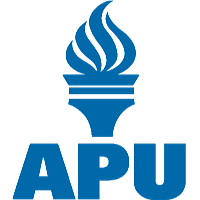Professional Development: On Your Schedule, Within Your Budget
By Rachel Dhaliwal, Career Coach
If you’ve been in the workforce for a while, chances are good that you’ve heard the term “professional development.” Professional development is vital to your career, as it’s directly relevant to how – and how much – you continue to grow and move forward in the workplace. Fortunately, it can take many forms, making it easy for anyone to do regardless of their financial or time constraints. To explore which options may work best for you, let’s look at some different avenues of professional development.


If your company has an HR department, reach out to them and inquire about their professional development offerings
RACHEL DHALIWAL, CAREER COACH
On-The-Job-Training
Obviously, you undergo a lot of training when you first begin a new role, but when that ends, you should continue to seek out opportunities to learn more. Join a committee, take charge of a project, or even just ask around and see if a coworker (especially one whose job differs from yours) needs help with anything.
If your company has an HR department, reach out to them and inquire about their professional development offerings. Even if they don’t have something currently available, they will likely be able to give you some suggestions and point you in the right direction.
Professional Organizations
Joining a professional organization comes with a lot of benefits – not least of which is education and training. You can attend conferences, grow and learn directly from your network of peers, and keep up with industry changes through the organization’s website, social media accounts, or publications.
If you prefer something a little closer to home, you can reach out to your local Chamber of Commerce and research your options through them. Chambers of Commerce regularly host mixers, events, and training courses, so even if you don’t want to become a member, there are still benefits to be had.
Continuing Education
Whether it’s formal courses at a college or university, or weekend computer classes at the community center, all knowledge is worth having. You may even be fortunate enough to have your employer pay for some, or all of your courses, so be sure to ask!
Another option available is online trainings, such as can be found on LinkedIn Learning, the Khan Academy, edX, and more. It is important to note that the value of most of these courses lies in the knowledge you will gain from them – most of them are not the kind of courses that lead to a certification.
Certifications
Certifications are credentials awarded by a professional organization or other authorized person or agency which attest to an individual’s demonstrated proficiency within a designated field or technology. (Note that “certificate programs” at a university are NOT “certifications.”)
Even if one is not required for your current position, they are great sources for professional development, and are excellent additions to your resume. Who knows? Maybe a certification is just the thing you need to take the next step up in your organization.
Regardless of whether you’ve been working for two days, two years, or two decades, you should never stop pursuing professional development. Not only will it keep you competitive in the job market, it’s also a great way to keep you involved and committed to your passion. Whether it’s about your position, your industry, or your career in general, you should always be on the lookout for opportunities to learn something new.

CAREER ADVICE

GOV TALK

